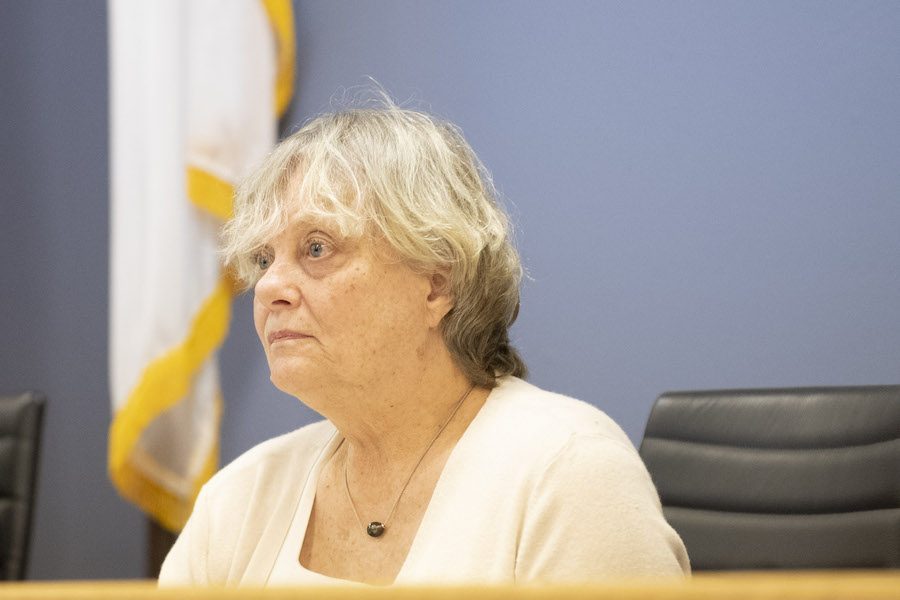Aldermen reject Chicago Avenue development, zoning map amendment
Daily file photo by Colin Boyle
Judy Fiske speaks at City Council. Although aldermen voted 5-4 in favor of the proposal and map amendment, its passage required a supermajority.
March 19, 2019
Aldermen rejected a proposed amendment to the zoning map at City Council on Monday that would have authorized a planned development on Chicago Avenue.
The development — a 13-story office space proposed to be located at 1714-1720 Chicago Ave. — would require a special use permit and an area zoning amendment that would result in the “most intense development within the city,” according to city documents.
Though aldermen voted 5-4 in favor of the proposal and map amendment, its passage required three-fourths of aldermen to approve it because of a petition signed and submitted to the city by 30 percent of owners of property within 500 feet of the development.
“On planned developments where there are significant variances, those require supermajority of the Evanston City Council, which means it takes six votes,” Mayor Steve Hagerty said. “That’s in an ordinance that was put in place a long time ago. If there’s a map change and the citizens petition, which happened in this case, then that requires seven votes of the city council to pass.”
Hagerty suggested that aldermen should consider the consequences of bundling a request for a zoning amendment with a planned development in future projects. Had the item been just the development itself, it would have passed on the 5-4 vote.
Aldermen and citizens highlighted the economic benefits, safety concerns and the impact the building would have on surrounding historical sites like The Woman’s Club of Evanston and the Frances Willard House.
Ald. Peter Braithwaite (2nd) said the building would bring millions of dollars to Evanston and its businesses. He called on aldermen and residents to consider the budget challenges in Evanston and how, if approved, the development would bring 400 new jobs and increase the tax base.
“Come September to November, we’re going to be arguing trying to figure out how we can save employees’ jobs, how we’re going to hopefully not cut necessary services to our vulnerable citizens,” Braithwaite said. “I just really hope you remember what your vote is going to be this evening.”
Some aldermen, including Braithwaite, called on opponents of the development to compromise, since rejecting the proposal would cause the city to lose important financial contributions. Office workers could bring up to $2.1 million per year in additional spending revenue, according to city documents.
Ald. Judy Fiske (1st) said the building would generate more economic activity. As a city that operates on property tax revenue, Fiske said such economic gains are essential. However, she added that Evanston has lost some of the small businesses the city has been “incubating for years.”
“We see them grow, we see them prosper and then we don’t have the office space for them to move into,” Fiske said. “They leave and go to Chicago or another community. That has happened over and over and over again … Real estate agents told us over and over again we don’t have enough office space. That’s what we’re trying to address here.”
Email: [email protected]
Twitter: @cassidyw_


